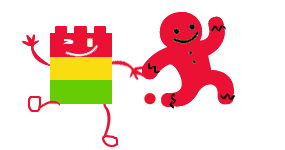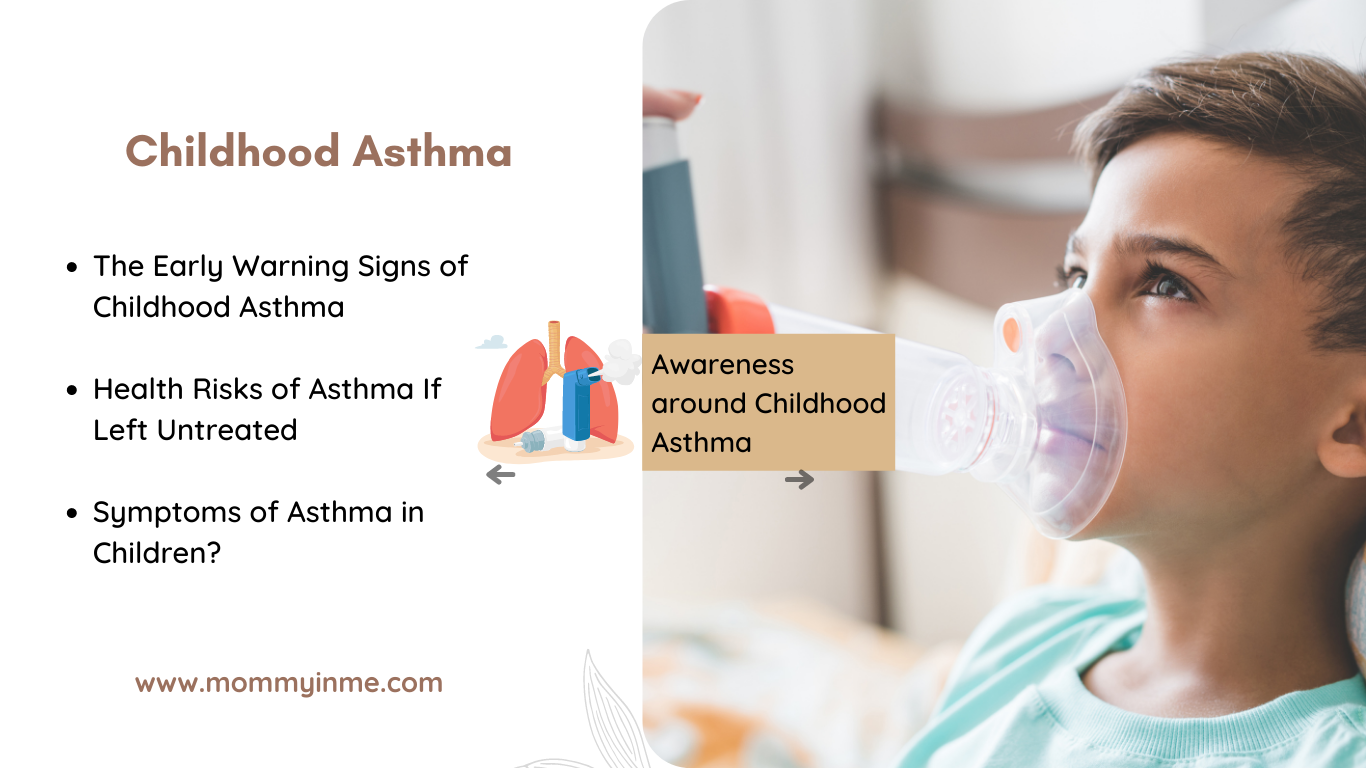Signs of Childhood Asthma
Childhood asthma, also known as pediatric asthma, is a very common chronic inflammatory disease of the lungs characterized by a hindrance of airflow. The diagnosis of asthma in children is primarily based on the signs and symptoms. However, it can be challenging to diagnose asthma in children because there are many conditions with asthma-like symptoms in this particular age group. Therefore, pediatricians have to monitor signs keenly, their prevalence of occurrence, perform a physical examination, and discuss the child’s entire medical history. In addition, children are subjected to various tests to rule out other health conditions and get to the bottom of the causes of the symptoms. Some tests to diagnose asthma in children are the lung function test and chest or sinus X-ray.
Health Risks of Asthma If Left Untreated
Treating asthma will enable your child to lead an everyday life. However, leaving asthma untreated can result in serious medical issues making it even more challenging to get it under control. In addition, the dangers of untreated asthma will stretch your financial muscles significantly. It can also lead to difficulties ranging from lifestyle disruptions to longer stays in the hospital or even cause death.
Lifestyle disruptions include:
- Physical inactivity – asthmatic children cannot perform some physical activities as they can exacerbate their symptoms. Lacking physical activities can result in other health conditions such as obesity and psychological distress.
- Poor performance – uncontrolled asthma interferes negatively with the child’s routine. For example, the child misses out on school when they have asthmatic flare-ups, which might lead to poor academic performance.
- Sleep disturbances – asthmatic symptoms are mainly exhibited during the night. This can lead to sleep deprivation, negatively impacting the ability to study efficiently at school.
- Uncontrolled asthma can lead to stress and anxiety. The pressure will most likely worsen it and make it more challenging. Children whose asthmatic conditions are not managed well understandably experience anxiety and stress due to their health condition.
Childhood asthma needs close monitoring and medications, typically in the form of inhalers. Symptoms that call for emergency care comprise severe chest pain, extreme difficulties in breathing, bluish coloration of the skin, and problems in talking or walking. In addition, missing forgetting to take any prescribed medication can result in more powerful attacks that will often require hospitalization.
Undiagnosed or under-medicated asthma can lead to a higher risk of lung scarring and permanent damage to a child’s airwaves and lungs. The permanent alterations will comprise increased blood flow to the airways, increased mucus production, and thickening of airways. This stage is irreversible even with medicine, and it may require your child to use external aids to breathe.
A total respiratory failure will result in severe asthmatic attacks and airways getting wholly shut. At this stage, rescue medications such as albuterol cannot open them up any longer. If immediate treatment is not found instantly, it can lead to death.

What are the Symptoms of Asthma in Children?
Childhood asthma is similar to adult asthma. The child can live a typical life by medicating to keep the symptoms under control and prevent damage to the growing lungs. However, pediatric asthma poses unprecedented challenges, and the condition is the leading cause of hospitalization, regular visits to the emergency department, and missed school days. Unfortunately, pediatric asthma has no known cure, and the symptoms develop into adulthood. Settling for good treatment options will keep your child out of danger and lead an everyday life.
The common pediatric asthmatic symptoms and signs include:
- A frequent and recurring cough that worsens when your little one suffers from a viral infection. In most cases, it occurs when your child is sleeping, after physical activities or when they have been exposed to cold air.
- A child produces a wheezing or whistling sound when breathing in and out
- The child exhibits less energy when playing, and they often stop to catch their breath when doing physical activities
- They experience trouble breathing because of breathing problems and coughing that hampers play or exercise
- Infants have trouble eating or sometimes grunt while eating
- Chest congestion or tightness
- Developing bronchitis after a respiratory infection
- Tight chest muscles and neck
- Seesaw motions in their chest, also known as retractions
- Feeling weak or tired
- Rapid breathing or shortness of breath
Severe pediatric asthmatic attacks need emergency medical care, and its signs include:
- Using stomach muscles to breathe
- A belly that sinks under their ribs when they try to get air
- Ceasing in the middle of a sentence to take a breath
- Chest and sides that gets pulled in as they breathe
- Severe wheezing
- Severe coughing
- Fast heartbeat and widened nostrils
- Increasing breath shortness with decreased wheezing
Conclusion:
It is essential to note that the symptoms and signs vary from child to child. For example, a child might only exhibit a single indication, such as bouts of coughing or wheezing that worsen with a cold or flu. But if you have any worries that your child may have asthma, you should seek help from a medical professional immediately.
Read more: Importance of Mental Health & Child Counselling
Love & Light,
Jhilmil





Childhood asthma is a serious disorder and some time it seems like other routine respiratory infections. you have mentioned all details so well in this post. will help lots of parents to be aware and tackle their kid’s asthma condition with more precisely.
One of my niece have this issue and bhabhi was telling me about this issue and how it’s difficult for the parent your post is very informative.will surely share it with her
I met one of my relative her daughter have this issue.your post is very very informative.will share it with her
What an in-depth post about, Asthma, Jhilmil. I never knew any of the points you have written about. Thank you for the detailed insights.
What an amazing and in-depth post about such an important topic. Kids’ health is of utmost concern for parents and it is tough sometimes to stay on top of things. Your post will certainly help many!
Helpful post. Especially nowadays when kids are getting serious ailments at such young age that its become imperative to pay attention to the symptoms and care.
Thank you for sharing..this is informative post .helpful post